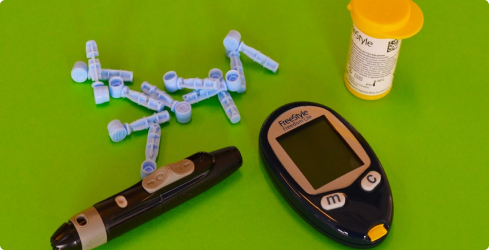How Sugar Affects Your Body
Calories
In fresh foods, a limited amount of sugar is necessary for good health. Too much sugar can be very unhealthy. People who got about 20% of their calories from sugar had a 38% greater chance of dying of cardiovascular disease.
Weight gain
Eating too much added sugar can add pounds quickly. The more sugar you eat, the more fat will be stored. It can also ‘turn off’ the full signal, leading you to keep eating after you’ve had enough.
Heart disease
Sugary drinks can bump up your blood pressure. Eating sugar laden processed food is associated with more fat in your bloodstream. That’s a bad combination, making heart disease much more likely
Acne
Believe it or not, eating too much sugar can send your hormones spiraling out of control. In addition to causing many other problems, that can lead to acne breakouts and bad skin.
Diabetes
There may be a lot of factors that go into developing type 2 diabetes. However, more sugar leads to weight gain and insulin resistance, which are the two main risk factors for developing diabetes.
Cancer
While cancer cells need sugar to function, so do healthy cells. There’s no direct connection between sugar and cancer. However, sugar can lead to weight gain and excess fat, both of which are linked to an increased chance of cancer.
Depression
While mental disorders like depression and anxiety are thought of as behavioral problems, there may be hormonal triggers. Men and women who consumed higher amounts of sugar were 23% more likely to develop depression or another common mental disorder.
Aging
Sugar molecules can connect elastin and collagen, two amino acids that support the skin. Called glycation, that process can increase wrinkling and other signs of aging. More seriously, glycation is also associated with the aging process of internal organs.
Dental health
Plaque and tooth decay are caused primarily by the bacteria living in your mouth, eating through your teeth and leaving behind plaque. Sugar acts as fuel for those bacteria, sending them into overdrive.
Gout
Dietary fructose and naturally occurring fructose when consumed in large amounts can lead to the development of gout. Two or more daily glasses of fruit drinks may increase the chances of developing gout by 81%.

In fresh foods, a limited amount of sugar is necessary for good health. Too much sugar can be very unhealthy. People who got about 20% of their calories from sugar had a 38% greater chance of dying of cardiovascular disease.

Eating too much added sugar can add pounds quickly. The more sugar you eat, the more fat will be stored. It can also ‘turn off’ the full signal, leading you to keep eating after you’ve had enough.

Sugary drinks can bump up your blood pressure. Eating sugar laden processed food is associated with more fat in your bloodstream. That’s a bad combination, making heart disease much more likely

Believe it or not, eating too much sugar can send your hormones spiraling out of control. In addition to causing many other problems, that can lead to acne breakouts and bad skin.

There may be a lot of factors that go into developing type 2 diabetes. However, more sugar leads to weight gain and insulin resistance, which are the two main risk factors for developing diabetes.

While cancer cells need sugar to function, so do healthy cells. There’s no direct connection between sugar and cancer. However, sugar can lead to weight gain and excess fat, both of which are linked to an increased chance of cancer.

While mental disorders like depression and anxiety are thought of as behavioral problems, there may be hormonal triggers. Men and women who consumed higher amounts of sugar were 23% more likely to develop depression or another common mental disorder.

Sugar molecules can connect elastin and collagen, two amino acids that support the skin. Called glycation, that process can increase wrinkling and other signs of aging. More seriously, glycation is also associated with the aging process of internal organs.

Plaque and tooth decay are caused primarily by the bacteria living in your mouth, eating through your teeth and leaving behind plaque. Sugar acts as fuel for those bacteria, sending them into overdrive.

Dietary fructose and naturally occurring fructose when consumed in large amounts can lead to the development of gout. Two or more daily glasses of fruit drinks may increase the chances of developing gout by 81%.
